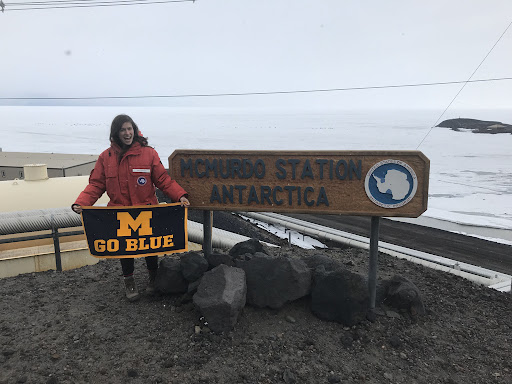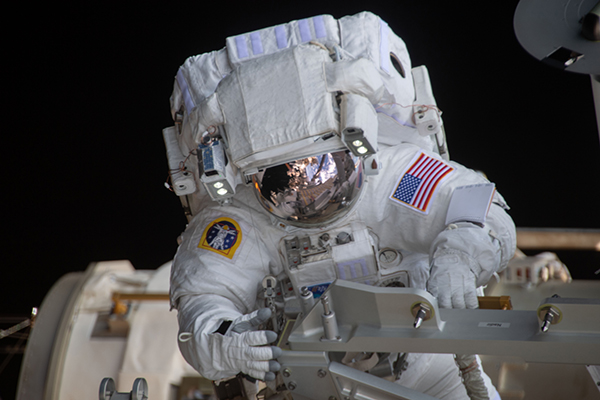
Teaching a Course on Human Spaceflight, Matula Brings Career Experience to CLASP Students
From algae to astronauts, Matula’s NASA experience and research helps build the space curriculum at U-M Climate and Space.

From algae to astronauts, Matula’s NASA experience and research helps build the space curriculum at U-M Climate and Space.
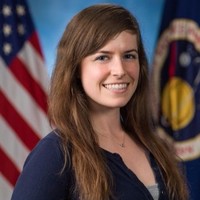
Michigan Aerospace welcomes Dr. Emily Matula to our academic roster this fall. She is joining us to teach a new course, ‘Engineering Considerations and Research for Supporting Human Spaceflight’. The course represents an increasing focus on space-related programs and is offered through the Aerospace and Climate and Space departments as a collaborative part of the University of Michigan Space Institute.
We sat down with Emily to get to know her a little better.
What is your role at Michigan Aerospace this fall?
I will be teaching a seminar course focusing on human spaceflight and the subsequent required engineering systems (AERO 495-070). The range of covered topics includes understanding the space environment, biological reactions to the space environment, vehicle and habitat design, and the current status of the commercial space sector.
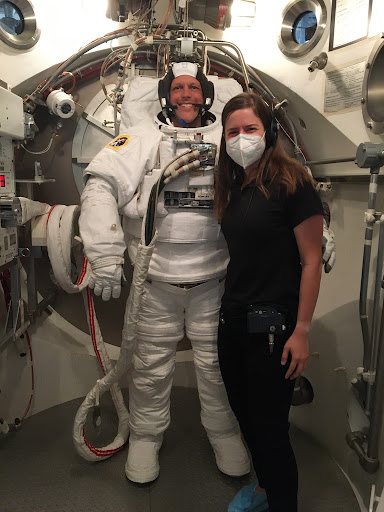
What do you research and why?
My current role as an extravehicular activity (EVA) flight controller/instructor does not explicitly include research, however, I conducted environmental control and life support system (ECLSS) research for my PhD. I was investigating how to use algae for air revitalization (O2/CO2 exchange) and simultaneous thermal control (heat transport in algal water) for a planetary surface habitat or spacecraft. We will need carbon loop closure to ensure Earth-independence, algae is an often overlooked work-horse in biological systems that could provide this closure. I am a consultant on various projects using bioregenerative ECLSS because I grew (no pun intended) to appreciate the multifunctionality of algae and believe it can also help terrestrial carbon remediation.
Why did you become a researcher/faculty member?
When I was attending Michigan, there were no human spaceflight classes or research being conducted in the College of Engineering. I graduated and left Michigan to attend a university that offered that focus. I believe Michigan has the resources, and the students have the passion, to support a prestigious bioastronautics program. Offering this seminar course is a step toward adding a human spaceflight focus to the College.
What have been the highlights of your career?
Getting NASA funding for my PhD research, doing a “suited run” in the Neutral Buoyancy Laboratory in an EMU (spacesuit), exchanging “Go Blue”s in the hall with one of the newest Astronaut Candidates (Andre Douglas), and helping with decompression sickness research by living in a vacuum chamber for 12 days
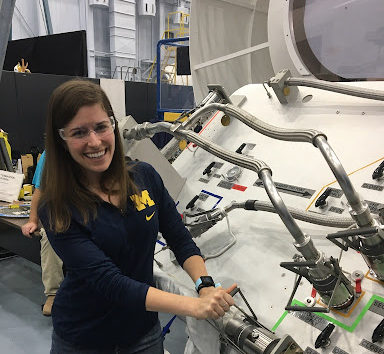
What do you want aerospace students to know about you?
I was once sitting in their seats a few years ago. I earned my Mechanical Engineering BS and Space Engineering MEng at Michigan. I am excited for this opportunity to bring human spaceflight to Michigan, giving students the tools to continue Michigan’s presence in the crewed space sector.
What do you do for fun?
I love being outside, whether it be for gathering algae samples as a NOAA citizen scientist or hosting night sky tours at the George Observatory, the best day is spent beyond four walls. I’m also a huge procrasti-baker, but at least my family/friends get the tasty benefits!
